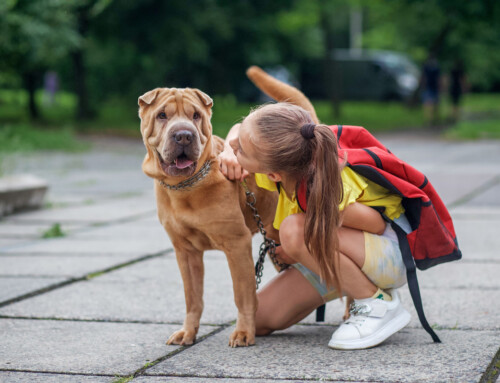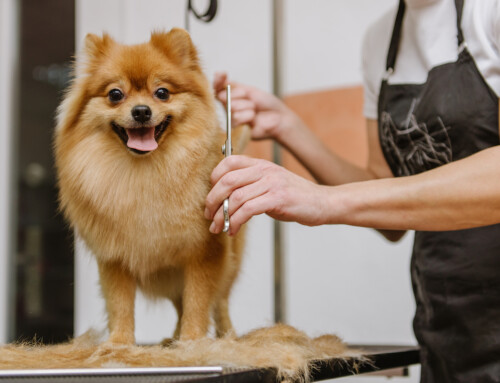Did you know that 3.2 animals are adopted from shelters each year? Animal adoption is a great way to bring a new family member into your life. It is also a great way to save lives, as approximately 1.5 million animals are euthanized each year who need a forever home.
If you’re considering adopting a shelter pet, congratulations! You are about to embark on a life-changing venture for a new furry pet, and possibly for yourself.
Before you get started on adopting a shelter pet, we’re sharing advice to make the process as smooth as possible.
What to Consider Before Adopting a Shelter Pet
Shelter pet adoption typically consists of cats and dogs. You can also find other animals for adoption, ranging from ferrets to rabbits and even exotic birds.
In this case, we’ll typically be talking about dogs and cats.
When you are considering adopting a shelter dog or cat, you will need to think carefully about the following factors:
Where You Live
Think about where you live. Is it an apartment? Do you own a house or live in a condominium?
Your home space is a major first deciding factor on the type of animal you can adopt. If you rent a house or apartment or live in a condo, you will need to check your lease or condominium agreement. In some instances, you will not be allowed to adopt a specific pet or have pets at all.
If this is the case, you may have to choose a much smaller animal that won’t break any guidelines. You don’t want to risk eviction or being fined.
Furthermore, adopting an animal and giving it away because your landlord won’t allow it can bring a lot of stress on yourself and your pet.
Meanwhile, if you are in the clear with your landlord or own a home, you can move forward with adopting a shelter pet!
The Size of Your Home and Yard
Next, you’ll want to consider the size of your home as well as the yard space. This will make a difference in what breed you should adopt, specifically for dogs.
If you live in an Atlanta high rise, think about the size of your apartment and what type of dog would fit well there. If you live in a studio apartment, seeking out a Great Dane might not be the best choice.
Animals need some freedom to move around in your home. They like to find places to sleep or look out the window. If your home is small and cramped, a small breed dog or cat may be the best fit for you.
In terms of your yard, this is also a very important consideration when looking for a shelter pet, specifically for dogs.
All dogs need exercise on some level. However, the amount of exercise depends on the breed, size, age, and physical condition of the dog.
Some dogs that require a large amount of exercise include:
- Labrador retriever
- Border collie
- Boxer
- English springer spaniel
- German shepherd
- Golden retriever
These dogs need to run. A large fenced-in yard would work great for these dog breeds.

Are Children in the Home?
Many children love cats and dogs. However, you’ll want to be sure that love is reciprocated with the right pet.
When choosing a shelter pet, some shelters will be able to tell you if the pet is safe around kids. You’ll want to introduce slowly and set strict rules on how the child can or cannot interact with the pet.
Furthermore, some dog breeds are friendlier with kids than others. Good dog breeds for kids include beagles, golden retrievers, labs, and german shepherds. Here is a list of 20 dog breeds that are good with kids.
How Much Time Can You Devote to Your Pet?
This is another critical element of adopting a Shelter Pet. You want to make sure that you have enough time to spare to be social with your new furry companion.
According to the AKC, most dogs need a minimum of two hours of human or social contact each day. In mind that this guideline aligns with the age, breed, and health condition of your pet.
Dogs that spend the majority of their time alone can develop behavioral problems. As a pet owner, we need to make sure that we spend enough time with our animals to know that they are loved and are safe.
If you are unable to spend at least two hours a day with your dog, you may want to consider adopting a cat instead. Cats still crave love and attention, but they only need about 30 minutes a day split into two 15-minute sessions. Some cats want more or less, but the key is to give attention in short bursts.
Grooming Requirements
Another important consideration is the grooming requirements of your pet. Keeping your pet well-groomed is important to their overall health. This is especially important when it comes to nail clipping.
Neglecting nails can cause a lot of discomfort to your pet, which is true for both dogs and cats. Nails can grow out and curl into the paw pads which creates a considerable amount of pain.
How often should you trim your new shelter pet’s nails? It’s best to try to trim them at least once a month. You can do this yourself or take your vet to your veterinarian clinic.
Meanwhile, consider grooming requirements for dogs or cats with long hair. They will need their hair brushed regularly to avoid knots and tangles.
Some dogs and cats do best when they are professionally groomed. This might be true for breeds such as pomeranians and poodles.
You’ll also need to consider the expense of grooming. Some dogs can cost up to $100 depending on the breed and haircut you need.
Veterinarian Care
Now that you know the basics of adopting a shelter pet, there is also veterinarian care to consider. Every dog and cat needs to see their vet at some point in their life, and ideally at least on a yearly basis.
When it comes to veterinary care, there are several aspects to consider and expect for your pet to receive.
Spaying and Neutering
Many shelters will spay or neuter your pet before bringing them home. However, if you adopt your dog from the pound, you may need to do the spay or neuter with your own veterinarian.
Spaying and neutering is important to help the population control with unwanted pets. When you visit the local animal shelter, you will see that there are more than enough animals that need homes.
It’s best to spay or neuter your dog or cat not long after adopting them. It gets the surgery out of the way and helps them adjust to a new life and your new home.
There are some exceptions when it comes to spaying and neutering dogs and cats. Dogs that are particularly old may not be able to undergo anesthesia for the surgery. It is too risky in some cases, and blood work can reveal if the cat is able to be put under.
Furthermore, it is possible to spay a pregnant female dog or cat. But be forewarned that this will terminate the pregnancy.
Annual Vaccinations
Dogs and cats both need vaccines to help ensure that they stay healthy throughout the course of their life. The rabies shot is essentially a requirement for every animal.
Other common vaccines for dogs include Bordetella, distemper, and parvo. Cats will receive feline distemper that typically protects against several diseases. Cats can also get bordetella if they are being groomed.
Flea and Tick Treatment
This can be purchased at your veterinarian clinic or over the counter at pet stores. Flea and tick treatment is not an application that you want to forego. Fleas are notoriously difficult to get rid of once they get inside your home. Not to mention, they make your cat or dog miserable and can cause red, irritated skin.
Furthermore, ticks are dangerous to dogs, cats, and humans. They carry a myriad of diseases including Lyme disease.
Flea and tick treatment is an added monthly expense and the cost varies depending on the brand.
Heartworm Prevention
Lastly, it’s important to provide your dog with heartworm prevention medication. Heartworm is spread through mosquito bites. During hot and humid weather, dogs can easily become a quick target for mosquitoes.
Heartworm is a very deadly disease that destroys the heart from the inside out. It’s treatable but very expensive to do so. It’s much more cost effective and safe for your pet to prevent heartworm. There are several pills available that are only offered by a veterinarian.
Congratulations on Adopting a Shelter Pet!
Pets are a lot of work, but there is no comparison to the love that you’ll receive in return! Contact us for a wellness check with your new furry friend. We can’t wait for you to have a healthy, exciting, and loving life together!







